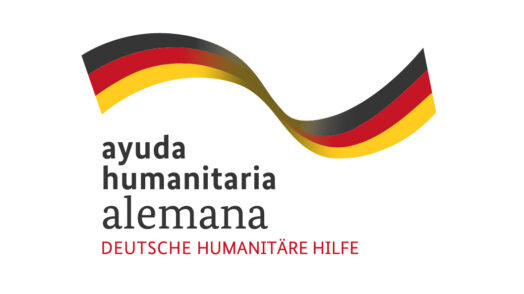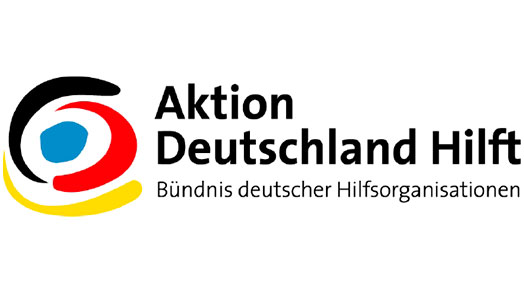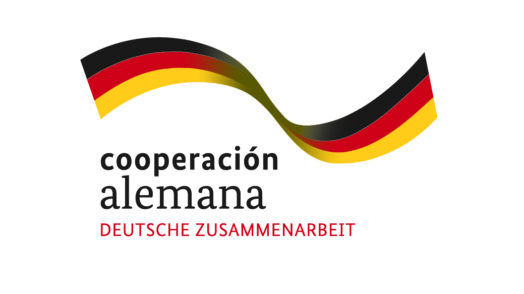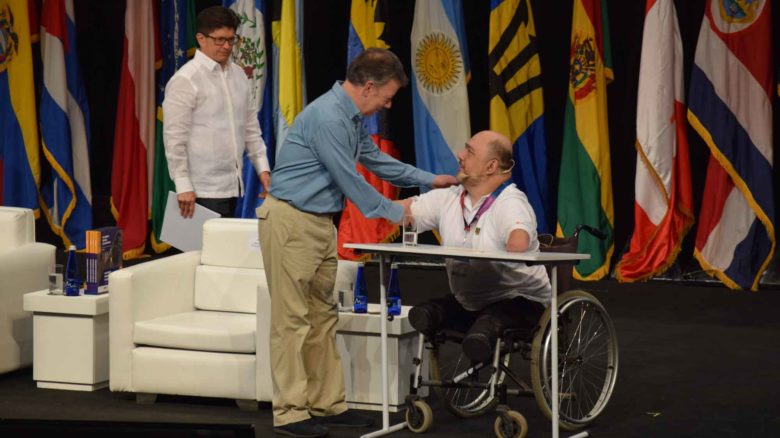

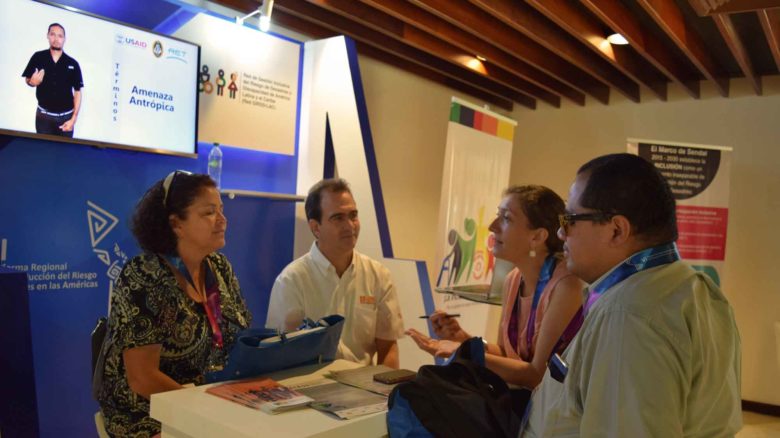
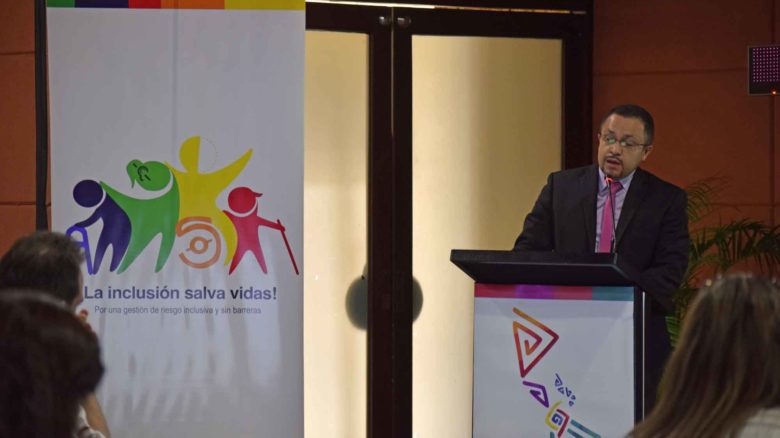
Cartagena Declaration highlights the need for inclusion of people with disabilities in disaster risk management
The VI Regional Platform for Disaster Risk Reduction (DRR) in the Americas, held in Cartagena, Colombia from June 20-22, 2018 highlights the importance of applying an equity, inclusive and participatory approach to disaster risk reduction.
The advocacy work of the Disability Inclusive Disaster Risk Reduction Network of Latin America and the Caribbean Red GIRDD-LAC T, where ASB is an active member. has influenced in a substantial manner the final declaration declaration of the Third Meeting of Ministers and High-Level Authorities on the Implementation of the Sendai Framework for DRR 2015-2030 in the Americas and the Caribbean. The Cartagena Declaration recognizes the disproportionate impact of disasters on vulnerable groups, their importance as agents of change, the need to apply an equity approach, inclusive and participatory, to the DRR to reduce the social, economic and psychological impact of such events.
The Cartagena Declaration recognizes the disproportionate impact of disasters on vulnerable groups, their importance as agents of change, the need to apply an equity approach, inclusive and participatory, to the DRR to reduce the social, economic and psychological impact of such events.
The declaration also notes in its point 2.7 that the Ministers and High Level Authorities of the Americas take note of the declarations made by members of civil society, including the RED GIRDD-LAC, community-based organizations and women's organizations at the VI Regional Platform, which facilitate inclusive disaster risk reduction for all of society.
The statement also points out that the High-Level Authorities of the Americas should pay attention to the statements made by members of civil society, including the GIRDD-LAC Network, community organizations and women's organizations. The statement also recognizes that during a catastrophic event, the mobility of people with disabilities and older adults may be limited, and that special attention to the needs of those is crucial to protect their lives and their fundamental rights, that efforts must be made to ensure their safety, protection and well-being, including through the implementation of an inclusive risk management policy in accordance with the national context.
"It took months, if not years of work to achieve this," says Alberto Gómez, Inclusion Coordinator of the Regional Office for the Americas of ASB, adding: "However, it is now time to ensure that this political will to include people with disabilities, as expressed in the Cartagena Declaration, does not remain on paper, but rather that concrete inclusion measures are incorporated into strategies, plans and programmes at the national and local levels with the broad participation of people with disabilities in all countries of the Americas and the Caribbean.
The GIRDD LAC network recognizes UNISDR for its determination to promote the participation and inclusion of people with disabilities both in DRR platform events and in risk reduction processes in general. Therefore, a special recognition for its constant and outstanding work in the promotion and defense of the rights of people with disabilities in DRR was given to Mami Mizutori, Special Representative of the Secretary General for Disaster Risk Reduction of the United Nations, during the closing ceremony of the Platform. The actions of UNISDR in favor of the promotion and defense of the rights of persons with disabilities began with an agreed policy in a meeting held in the Global Platform for DRR in Cancun, Mexico in May 2017, where it was established to work with the purpose of making the Regional Platform inclusive.
The RED GIRD-LAC was created in 2016 by ONG Inclusiva from Chile, RIADIS and ASB and has been supported since its beginning by the United Nations DRR Strategy (UNISDR) and the United Nations Pan American Health Organization (PAHO). In only 2 years since its creation, the RED GIRDD LAC Network has not only added new members such as RET International, CBM and UNICEF, but has become the main advocacy and promotion network for the inclusion and full participation of people with disabilities and their families in all phases of disaster risk management in Latin America and the Caribbean.

